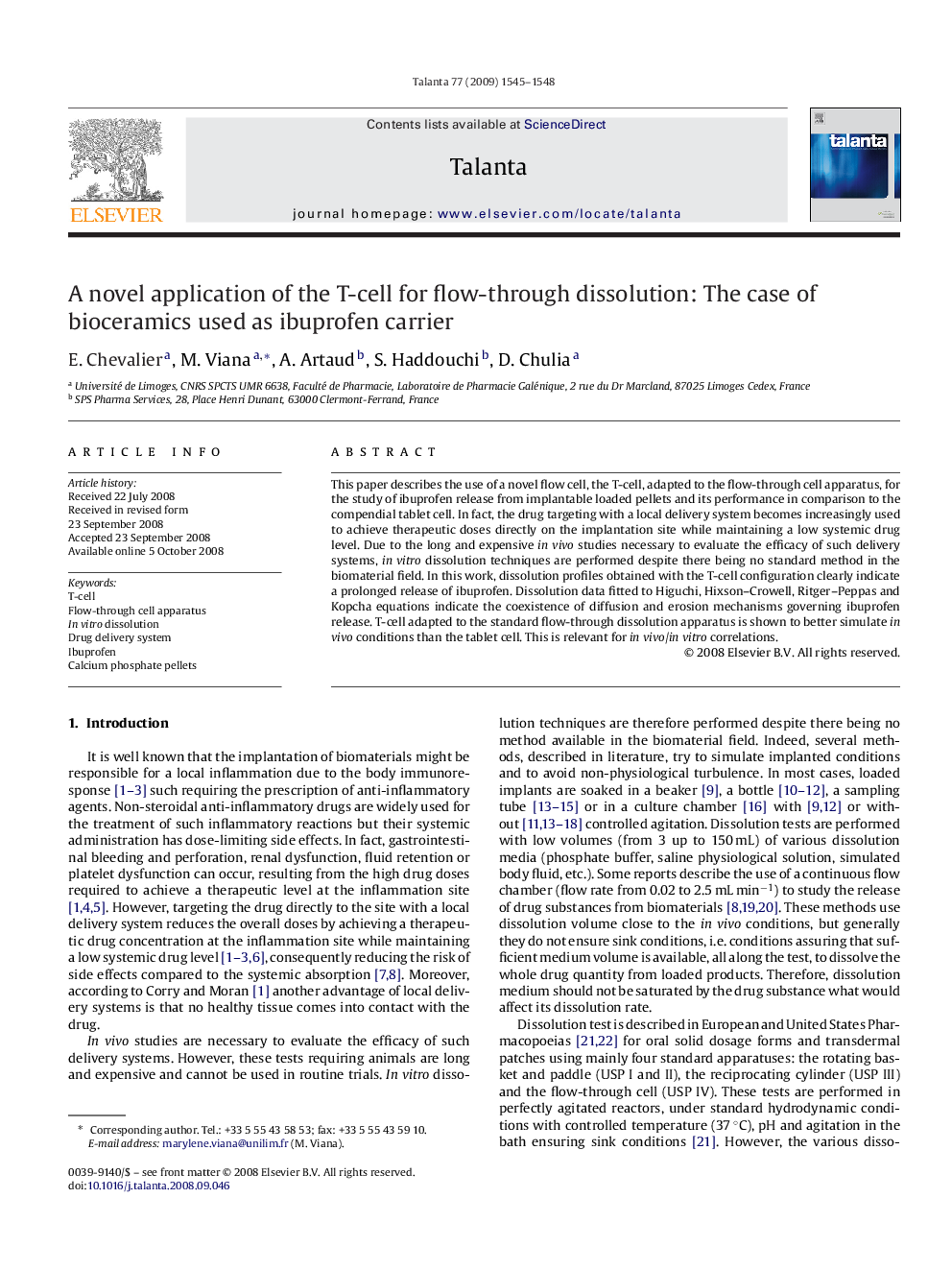| Article ID | Journal | Published Year | Pages | File Type |
|---|---|---|---|---|
| 1247010 | Talanta | 2009 | 4 Pages |
This paper describes the use of a novel flow cell, the T-cell, adapted to the flow-through cell apparatus, for the study of ibuprofen release from implantable loaded pellets and its performance in comparison to the compendial tablet cell. In fact, the drug targeting with a local delivery system becomes increasingly used to achieve therapeutic doses directly on the implantation site while maintaining a low systemic drug level. Due to the long and expensive in vivo studies necessary to evaluate the efficacy of such delivery systems, in vitro dissolution techniques are performed despite there being no standard method in the biomaterial field. In this work, dissolution profiles obtained with the T-cell configuration clearly indicate a prolonged release of ibuprofen. Dissolution data fitted to Higuchi, Hixson–Crowell, Ritger–Peppas and Kopcha equations indicate the coexistence of diffusion and erosion mechanisms governing ibuprofen release. T-cell adapted to the standard flow-through dissolution apparatus is shown to better simulate in vivo conditions than the tablet cell. This is relevant for in vivo/in vitro correlations.
